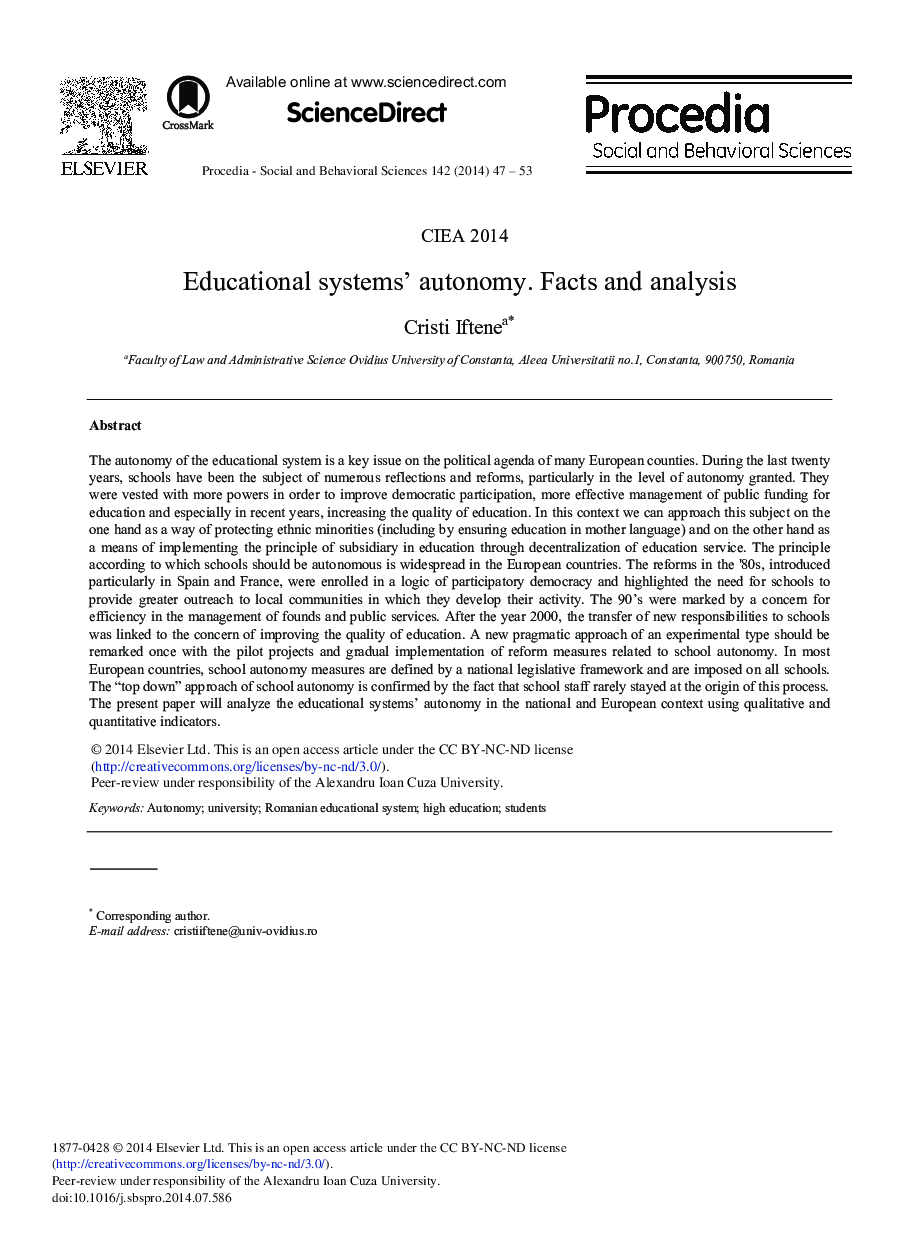| Article ID | Journal | Published Year | Pages | File Type |
|---|---|---|---|---|
| 1115606 | Procedia - Social and Behavioral Sciences | 2014 | 7 Pages |
The autonomy of the educational system is a key issue on the political agenda of many European counties. During the last twenty years, schools have been the subject of numerous reflections and reforms, particularly in the level of autonomy granted. They were vested with more powers in order to improve democratic participation, more effective management of public funding for education and especially in recent years, increasing the quality of education. In this context we can approach this subject on the one hand as a way of protecting ethnic minorities (including by ensuring education in mother language) and on the other hand as a means of implementing the principle of subsidiary in education through decentralization of education service. The principle according to which schools should be autonomous is widespread in the European countries. The reforms in the ‘80s, introduced particularly in Spain and France, were enrolled in a logic of participatory democracy and highlighted the need for schools to provide greater outreach to local communities in which they develop their activity. The 90's were marked by a concern for efficiency in the management of founds and public services. After the year 2000, the transfer of new responsibilities to schools was linked to the concern of improving the quality of education. A new pragmatic approach of an experimental type should be remarked once with the pilot projects and gradual implementation of reform measures related to school autonomy. In most European countries, school autonomy measures are defined by a national legislative framework and are imposed on all schools. The “top down” approach of school autonomy is confirmed by the fact that school staff rarely stayed at the origin of this process. The present paper will analyze the educational systems’ autonomy in the national and European context using qualitative and quantitative indicators.
